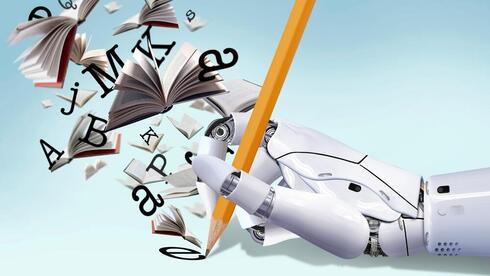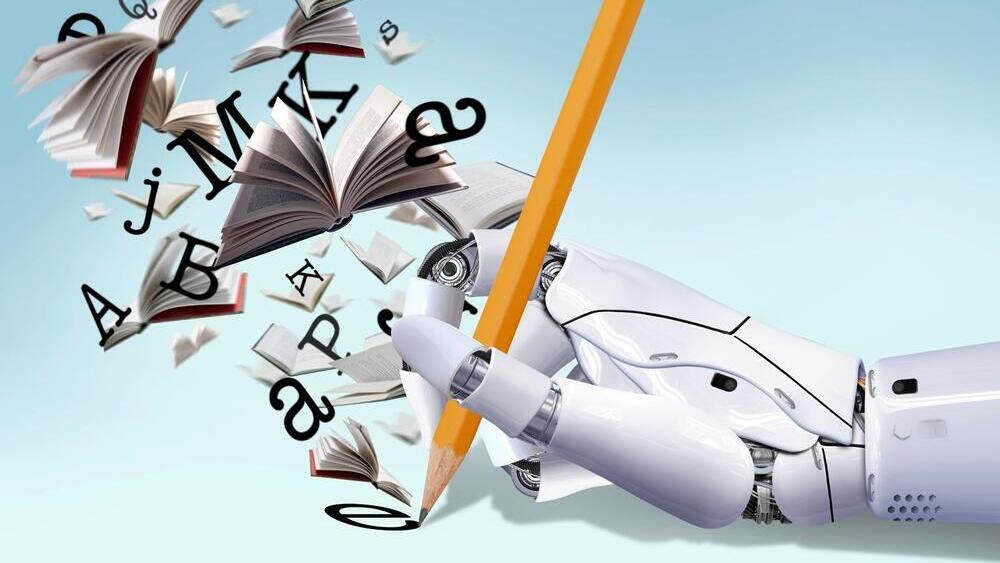
The WGA strike is igniting the conversation about Hollywood’s use of AI
Film studios and streaming services all use artificial intelligence to steer their projects - what does this mean for the creatives involved?
As the WGA strike enters its second month with late-night and broadcast television shows shuttering production indefinitely, questions have started to rise about the industry’s use of artificial intelligence to assist film studios and streaming platforms in creating, editing, and distributing content and the consequences it may have on the artists involved.
While the use of data to help services perfect some of their material is widely known (Netflix famously succeeded in creating a data-driven hit in its 2013 series ‘House of Cards’), writers are pushing back against the increase of tools like ChatGPT that they see as a risk to the creative process, and making sure it is used only as a tool to research or facilitate script ideas without leading to job loss or replacement.
1 View gallery


The WGA strike is happening at a time when tensions between artists and businesses are high
(Photo: Shutterstock)
“It is true that AI generates a lot of buzz, with the doomsday scenario of scripts now being written only by machines taking center stage,” said David Stiff, CEO of predictive consumer insights company Vault AI. “However, we are not there yet, nor do I think we ever will be at scale. There are very important other topics at the center of the strike, such as compensation.”
Vault AI uses predictive AI to predict future outcomes, helping its clients - typically film studios or production companies - optimize their chance of box office success. While this can be seen by Hollywood as something of a golden ticket, Vault AI is mindful not to intrude too much on the creative process of humans who write scripts or edit scenes. “At the end of the day, a writer needs to tell a story to the best of their ability and submit their draft… the draft you submit is the story that you feel is most compelling to an audience, which is the bottom line for any creative endeavor,” he added.
Hollywood and tech companies might use tools like Vault AI at the early stage of production or during the marketing process, such as creating different versions of movie trailers that would statistically generate the most audience excitement. It could also help tweak pacing in scripts or even predict which popular podcasts would be most suitable for television adaptations (like Apple’s ‘The Shrink Next Door’ or Hulu’s ‘The Dropout’). Broad data-driven insights can help assist writers or studios in their process without the risk of being totally replaced by generative AI technologies like ChatGPT.
German filmmaker Uwe Boll, director of 2009’s ‘Rampage’ and widely known for his movie adaptations of video games to varying commercial and critical success, agrees that AI can help identify market trends, audience preferences, and distribution strategies but highlights how Hollywood’s reliance on such technologies could discourage risk-taking and limit opportunities for more original storytelling.
“It's crucial to strike a balance between data-driven insights and artistic vision to ensure that the essence of filmmaking isn't lost,” he said. “The reliance on AI may overlook the intangible aspects of filmmaking, such as the emotional impact, cultural relevance, and the power of human interpretation.”
Hollywood is using AI to help with pitching and distributing content, but much of the WGA strike is also surrounding the personal use of AI tools that would impact the artist on a much smaller scale - interrupting their process entirely. VP of Innovation at VR/AR software company The Glimpse Group Jake Maymar revealed that many artists would disapprove of art generation tools in the SFX space publicly but confess to using them privately to help with their own process. “They were using it because they knew it was going to be powerful,” he said. “AI art generation was the first thing to become popular and solidify into a useful tool, mainly because it is easier to test… right now AI isn’t doing great writing, so a lot of people are using it to enhance their ability rather than having AI write for them.”
While both tech companies and artists are doubting that scripts will be written entirely by AI, many suggest that the integration of at least some technology, either at the request of Hollywood or not, is inevitable. “I think writers will have to adopt technologies. AI will be interwoven into everything and writers will need to adopt that,” Maymar added.
The WGA strike is happening at a time when tensions between artists and businesses are high, notably due to factors such as pay disputes and working hours, but also in the relationship that both parties have with technology. Most see its integration as essential and inevitable, with efforts now making sure AI doesn’t intrude on the rights, abilities, and processes of the individual creatives just trying to make a living. “Ultimately, the impact of AI in decision-making for companies can be a double-edged sword for filmmakers like myself,” concluded Boll. “It must be approached with caution to preserve the artistry and creative spirit that defines the filmmaking process.”













